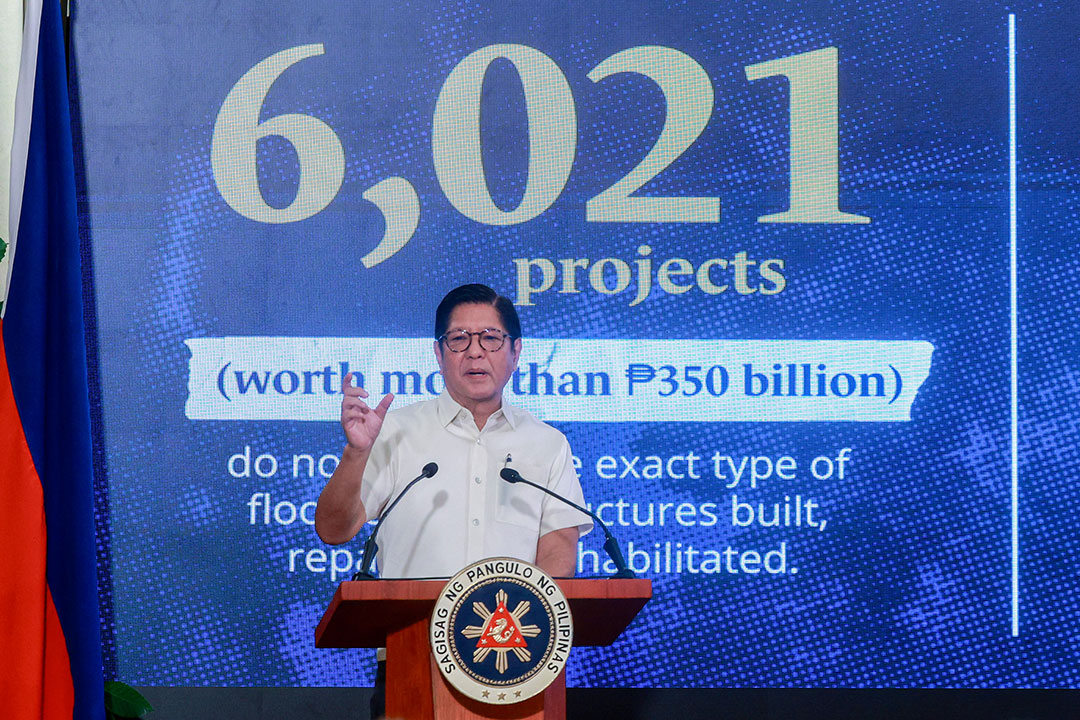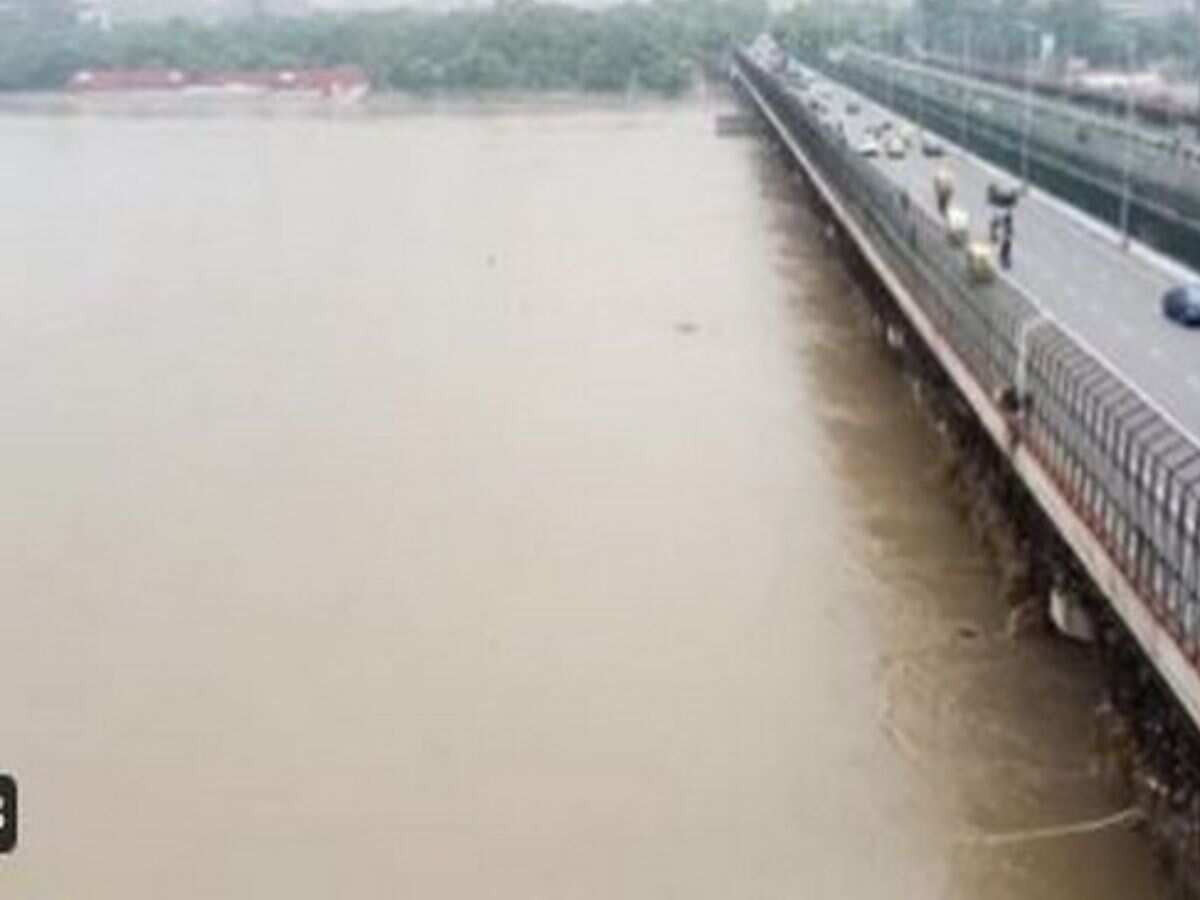 PRESIDENT Ferdinand R. Marcos, Jr. held a press conference on Monday in Malacañan Palace during the launch of the “Sumbong sa Pangulo” website, which will allow the public to report issues on flood control projects.— PHILIPPINE STAR/NOEL B PABALATE
PRESIDENT Ferdinand R. Marcos, Jr. held a press conference on Monday in Malacañan Palace during the launch of the “Sumbong sa Pangulo” website, which will allow the public to report issues on flood control projects.— PHILIPPINE STAR/NOEL B PABALATEAN EXECUTIVE order (EO) creating an independent body to investigate bogus flood control projects has been submitted to President Ferdinand R. Marcos, Jr., his executive secretary said on Sunday.
Executive Secretary Lucas P. Bersamin said Malacañang has given “serious study” to the pending issuance of the order creating a panel to investigate questionable flood control projects, adding that several names have been floated as possible members.
“It’s a very ideal commission for that purpose of looking at the flood control anomalies,” he told reporters after Mr. Marcos left for his Cambodia state visit. “We expect that in its final form, the executive order will be welcomed by the people.”
Mr. Marcos has previously said he will create an independent commission composed of investigators, prosecutors and justices to look into “nefarious activities” involving flood control project deals.
“I don’t know if the President has already signed it,” Mr. Bersamin said.
Reports of substandard flood control projects worth billions of pesos have fueled public outrage in a country increasingly vulnerable to severe flooding, with critics citing incomplete, poorly built or non-existent infrastructure.
The Philippine Congress has since launched an investigation into alleged large-scale corruption in flood control deals that may possibly implicate state engineers, construction firms and politicians amid claims of collusion to defraud infrastructure funds.
About P545 billion was channeled towards flood control projects since 2022, Mr. Marcos said in early August, noting that 15 contractors bagged about P100 billion or 20% of the total funds.
“We have had enough,” a joint statement signed by more than 120 organizations, including business groups and civil society coalitions stated. “We must reject the system of corruption that kills our fellow Filipinos and erodes our confidence in government.”
They added that Mr. Marcos’ independent commission must be composed of individuals with “unimpeachable integrity and competence.” “Someone must be held accountable, [and] those responsible must be punished.”
“The government must prosecute not just the small fish but the masterminds behind this flood control scandal,” they said in the Sunday statement.
The Public Works and Budget departments should also create a panel composed of scientists and local community leaders to study the flood control deals included in the proposed P6.793-trillion national budget for next year, they added.
Senator Joseph Victor “JV” G. Ejercito said in a statement on Sunday the independent body must be composed of engineers, retired justices of “unquestionable integrity” and representatives from religious and civil society groups, warning that a probe led by officials or lawmakers could undermine public trust in the proceedings.
Separately, Senator Erwin T. Tulfo called for the review of a law mandating contractor accreditation, arguing that the requirements enable conflicts of interest in public bidding.
Philippine contractors are required by law to be licensed by the Philippine Contractors Accreditation Board, whose board is composed entirely of contractors — a setup prone to self-dealing.
“How can they monitor, oversee and regulate construction projects in the country, whether these are done properly, are not substandard, or are not ‘ghost’ projects — if they themselves are also contractors?” he said in a separate statement.
“I cannot imagine how such a law was passed when some of its provisions are clearly self-serving, especially the qualifications for becoming part of the Board of Directors,” he added, referring to Republic Act No. 4566.
He said he would file a Senate resolution on Monday to review the law to determine whether it should be amended or abolished altogether.
Meanwhile, Senate President Francis G. Escudero said he wants to slash P250.8 billion from the Public Works department’s proposed budget for next year, redirecting the funds to health, education and food production.
“It would be more practical and beneficial to cut the funds allocated for flood control for now and redirect them to education, health, and food production while we await the Asian Development Bank-funded flood control master plan,” he said in a separate statement. “Reducing the DPWH budget also means reducing the potential for corruption.”
He said authorities should also consider partnering with local governments to coordinate dredging activities that could help alleviate flooding in vulnerable communities. — Kenneth Christiane L. Basilio

 3 hours ago
1
3 hours ago
1






















 English (US) ·
English (US) ·